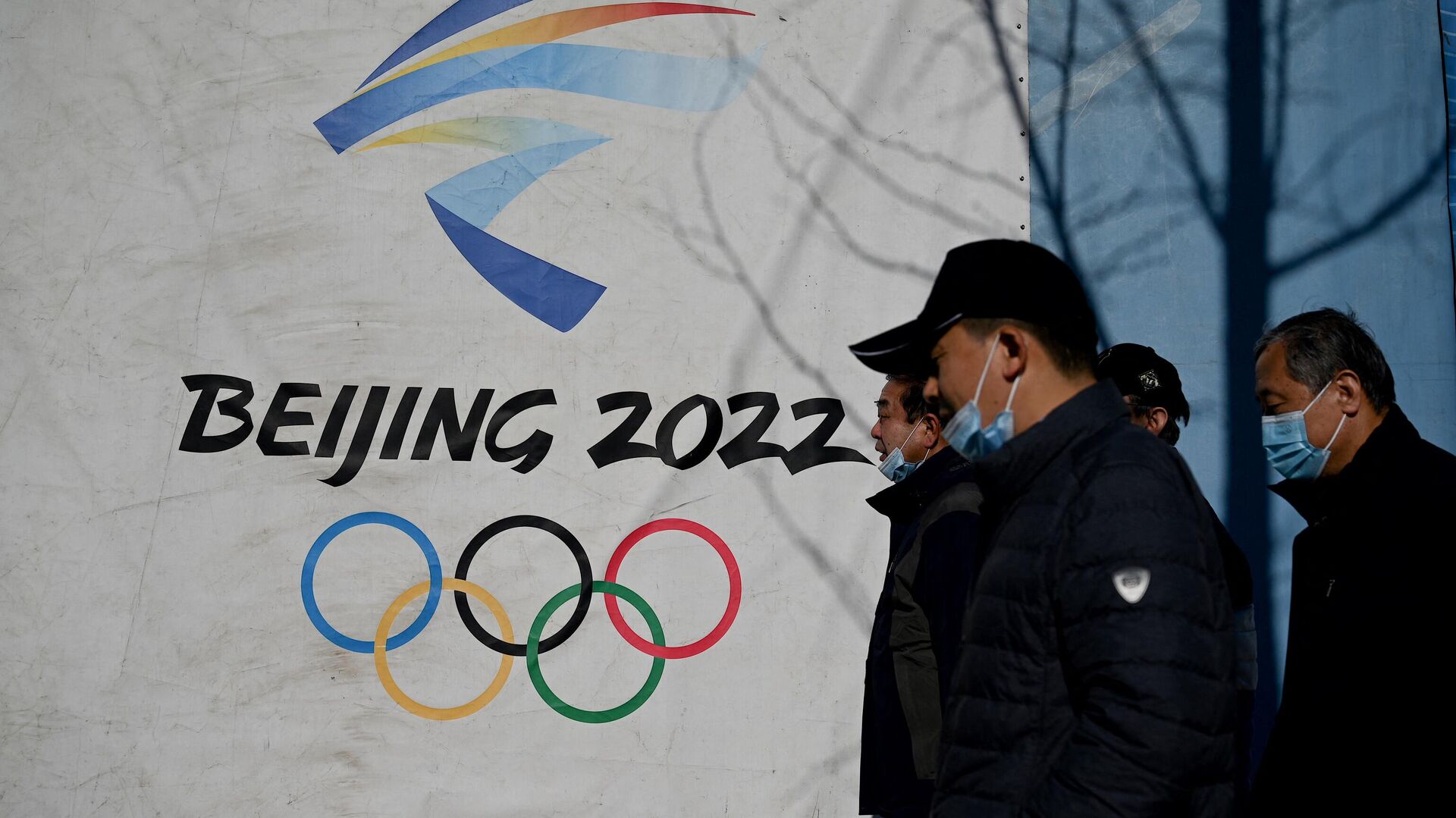Spectators Barred From Beijing Torch Relay Due to ‘Complicated, Severe’ Covid Outbreak Before Games

© NOEL CELIS
Subscribe
With the 2022 Winter Olympic Games just two weeks away, China is rushing to keep a lid on its small COVID-19 outbreak. Not only are thousands of athletes coming to Beijing, but hundreds of millions will be visiting family for the Spring Festival three days before the games begin.
As planned, the typically globe-spanning torch relay will be extremely limited for this year’s Olympic games, kept to just three days and the city of Beijing and the surrounding Hebei Province. However, officials from the games’ organizing committee said on Friday that even those relays would be closed to spectators.
"The torch relay of the Beijing Winter Olympics will be held in Beijing, Yanqing and Zhangjiakou from February 2 to 4, including 11 closed relay areas outside the closed loop and one independent relay area inside the closed loop,” Xu Zhijun, secretary-general of the Beijing Winter Olympics Organizing Committee, told reporters.
"We have formulated strict remote monitoring, health monitoring, vaccine injection, nucleic acid testing and other detailed and specific regulations, which will be implemented in accordance with our pandemic prevention regulations 14 days before the torch relay starts,” he added.
Yang Harbin, deputy director of Beijing’s Municipal Bureau of Sports, said their goal was to “prioritize safety.”
“Taking into account factors such as epidemic prevention and control, Olympic event preparations, and winter fire prevention, the torch relay and ceremonial activities will be arranged in safe and controllable closed venues. The venues will not occupy public roads, which avoids disruption to local production and life and the operation of the event organization."
Beijing’s games are the second to take place during the COVID-19 pandemic, following Tokyo’s Summer Games that were originally scheduled for 2020, but were postponed until July 2021. The torch had only begun its journey from Olympia, Greece, in March 2020 when the virus rapidly spread around the globe, resulting in its being kept on display in Tokyo for several months and resuming its original schedule around Japan’s provinces 364 days later than planned.
The torch for the Beijing games was lit in Olympia last October as well, but it only traveled a short distance in Greece before heading to Beijing, where it’s been kept since.
The Olympic organizing committee also announced earlier this week that tickets would not be sold to any of the games in order to limit Covid spread, but some spectators would still be present, having received their tickets via a private distribution process.
Zero Covid Versus Spring Festival
China has struggled since the initial COVID-19 outbreak in Hubei in December 2019 to contain the virus’ spread, successfully limiting its total cases over the past two years to just 122,500 and deaths to just 4,636, according to a count by the New York Times. However, the Delta and Omicron variants have created new stresses in the socialist country’s “Zero Covid” policy, with cities of tens of millions having to be tested and locked down, sometimes for weeks, like Shaanxi’s capital of Xi’an.
The policy has been very successful, with the National Health Commission reporting just 73 new cases on Friday, 50 of which were “imported” from abroad. Just a few cases can potentially infect thousands without strict safety measures, but now, the Chinese government faces a new pressure: the Spring Festival is coming up on February 1, when it’s typical to visit family and friends.
Pang Xinghuo, deputy director of the Beijing Municipal Centre for Disease Prevention and Control, explained Friday that the city was battling “clusters from two different sources. The first one was infected by international mail. There are five local cases of Omicron and they are all in Haidian district.”
“Another cluster was infected by the cold chain, and they are Delta cases. There are 13 symptomatic cases and five asymptomatic cases. They are found in Chaoyang, Fengtai, and Fangshan districts,” she said, describing the situation as “complicated and severe.”
Spring Festival, or Chinese Lunar New Year, begins on February 1, just three days before the Beijing Games are set to begin. However, the travel season began earlier this week, with about 1.18 billion passenger trips expected over the next 40 days to ring in the Year of the Tiger.
In recent weeks, Chinese health authorities have limited transit into and out of cities under lockdown, but some of those rules will be relaxed for the next few weeks. In response, extensive testing facilities have been set up at the country’s many high-speed rail stations, including free and mandatory nucleic acid testing services for passengers from medium- and high-risk areas, according to Xinhua News Agency.
Other measures include new self-service ticket verification machines and cleaning robots to disinfect public areas.
